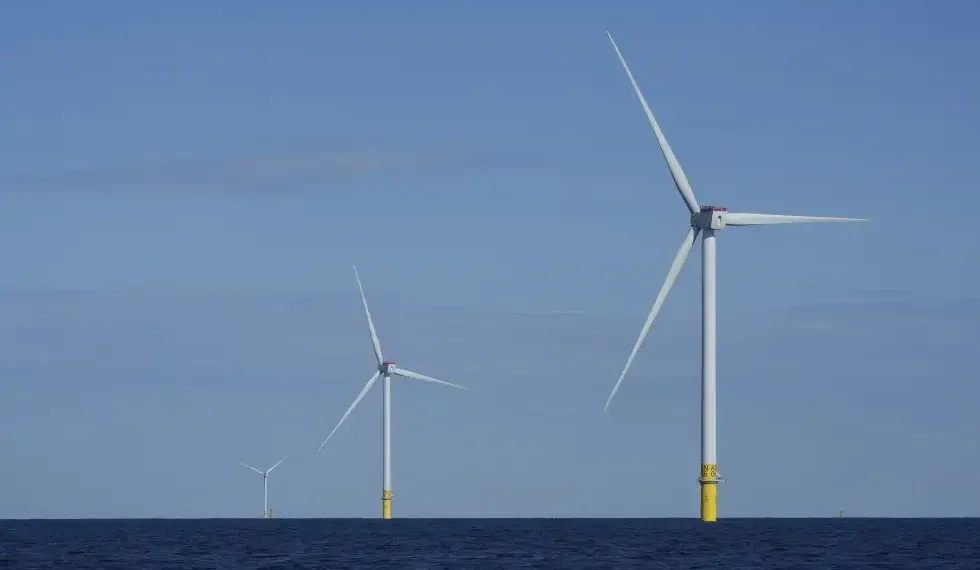States Push Back Against Trump’s Efforts to Block Wind Power Projects
A coalition of 17 state attorneys general, along with Washington D.C., filed a lawsuit Monday against former President Donald Trump’s attempt to halt the development of wind energy projects. The suit targets an executive order Trump signed on his first day in office, which effectively paused the approval, permitting, and funding of both onshore and offshore wind projects.
The attorneys general argue that Trump’s action oversteps his authority and jeopardizes the progress of wind energy—a critical source for both economic growth and environmental goals. They are seeking a federal judge’s declaration that the order is unlawful and asking for it to be blocked.
Leading the charge, New York Attorney General Letitia James expressed the coalition’s concern. She emphasized the significant economic and environmental consequences, stating, “This arbitrary and unnecessary directive threatens the loss of thousands of good-paying jobs and billions in investments, and it is delaying our transition away from fossil fuels that harm our health and our planet.”
In response, White House spokesperson Taylor Rogers dismissed the lawsuit, claiming that Democratic attorneys general were undermining President Trump’s energy agenda. Rogers argued that the American people elected Trump to prioritize American energy independence and that blue states should not be burdened by what he termed the “radical climate agenda” of Democrats.
Trump’s executive order, which directly targets offshore wind projects, is a direct reversal of policies implemented by the Biden administration. Biden’s administration viewed offshore wind as a key strategy in the fight against climate change, setting national goals and approving multiple large-scale offshore wind projects. Trump, however, has focused on boosting fossil fuel industries like oil, gas, and coal, which he claims are necessary to ensure the U.S. maintains the lowest-cost energy in the world.
The lawsuit, filed in federal court in Massachusetts, also challenges Trump’s move to freeze the Empire Wind project—a wind farm located off the coast of Long Island, New York. The project, which was 30% complete, had gone through a rigorous seven-year permitting process under the Biden administration. Equinor, the Norwegian company behind the project, is now considering legal options following the abrupt halt. This decision adds to the growing tension between Trump’s rollback of renewable energy policies and the broader global shift toward sustainable power sources.
Wind energy now accounts for about 10% of the U.S. electricity supply, making it the country’s largest source of renewable energy. The attorneys general argue that Trump’s order undermines decades of bipartisan support for wind energy and contradicts his own national energy emergency declaration, which called for expanded domestic energy production.
The coalition of states behind the lawsuit includes Arizona, California, Colorado, Connecticut, Delaware, Illinois, Maine, Maryland, Massachusetts, Michigan, Minnesota, New Jersey, New Mexico, New York, Oregon, Rhode Island, Washington, and Washington D.C. These states have collectively invested hundreds of millions of dollars into wind energy development and further investments to upgrade transmission lines necessary to bring wind power into the grid.
New York Governor Kathy Hochul criticized Trump’s order, calling it chaotic for businesses that rely on stable regulations to operate effectively. East Coast states, in particular, see large-scale offshore wind farms as essential to their renewable energy plans, given the limited land available for such projects.
Massachusetts has been a significant player in advancing offshore wind energy, with projects like Vineyard Wind moving through various stages of development. Massachusetts Attorney General Andrea Campbell emphasized the state’s commitment to ensuring its residents benefit from well-paying green jobs and affordable energy.
In a notable legal development, the U.S. Supreme Court recently denied a case challenging the Vineyard Wind project, a sign of the growing support for offshore wind in the U.S.
On the global stage, the push for wind energy continues to gather momentum. U.K. Prime Minister Keir Starmer announced a major wind power investment in April, and Nova Scotia is planning to offer leases for up to five gigawatts of offshore wind energy by 2030. Political leaders around the world are clearly committed to expanding wind power, while some, like Trump, continue to advocate for fossil fuels.
The ongoing legal battle highlights a deeper conflict over America’s energy future—one that pits the continued investment in fossil fuels against the accelerating push toward renewable sources.
This article was rewritten by JournosNews.com based on verified reporting from trusted sources. The content has been independently reviewed, fact-checked, and edited for accuracy, neutrality, tone, and global readability in accordance with Google News and AdSense standards.
All opinions, quotes, or statements from contributors, experts, or sourced organizations do not necessarily reflect the views of JournosNews.com. JournosNews.com maintains full editorial independence from any external funders, sponsors, or organizations.
Stay informed with JournosNews.com — your trusted source for verified global reporting and in-depth analysis. Follow us on Google News, BlueSky, and X for real-time updates.














